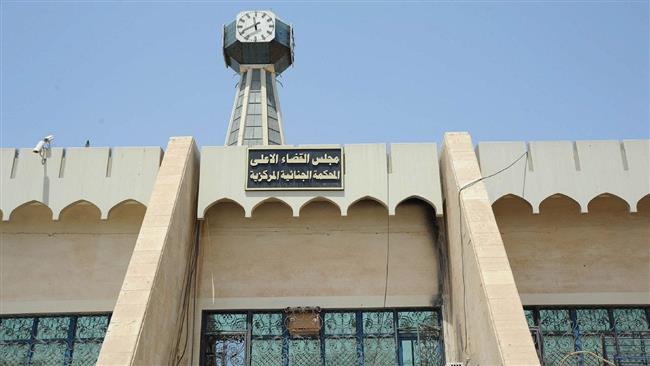
RNA - “The Central Criminal Court issued a death penalty by hanging for a German citizen of Moroccan origin in accordance with Anti-Terrorism Law,” Abdul Sattar al-Biraqdar, spokesman for Iraq's Supreme Judicial Council said in a brief statement on Sunday.
Biraqdar added that the woman, whose identity was not disclosed, confessed during investigations that she had traveled from Germany to Syria and then to Iraq, because she had a strong belief in Daesh.
The German citizen was accompanied with her two daughters, who later married members of Daesh terrorist group.
“The woman is accused of providing logistical support to the terrorist organization, and helped them commit their criminal acts. She is also convicted of complicity in attacking Iraqi security forces,” Biraqdar said.
On December 9, 2017, Iraq’s Prime Minister Haider al-Abadi declared the end of military operations against the Daesh terrorist group in the Arab country.
“Our forces are in complete control of the Iraqi-Syrian border and I therefore announce the end of the war against Daesh,” Abadi told a conference in Baghdad then.
Abadi visited the town of Qa'im and the nearby Husaybah border crossing in far western Iraq on November 5, and raised the Iraqi flag at the border crossing.
On October 5, Abadi said Iraqi armed forces had liberated Hawijah, driving Daesh Takfiris out of their last bastion in the oil-rich northern province of Kirkuk.
The Iraqi prime minister said on August 31 that the northwestern city of Tal Afar, located 200 kilometers northwest of Kirkuk, and the entire Nineveh Province had been purged of the Daesh Takfiri terrorist group.
The recapture of Tal Afar was made possible with the help of the Iraqi army, Federal Police, Counter-Terrorism Service (CTS) units, Hashd al-Sha’abi fighters and the Interior Ministry's elite rapid response forces, the Iraqi prime minister stated.
On July 10, Abadi formally declared victory over Daesh extremists in Mosul, which served as the terrorists’ main urban stronghold in the conflict-ridden Arab country.
In the run-up to Mosul's liberation, Iraqi army soldiers and volunteer Hashd al-Sha’abi fighters had made sweeping gains against Daesh.
The Iraqi forces took control of eastern Mosul in January 2017 after 100 days of fighting, and launched the battle in the west on February 19 last year.
Daesh began a terror campaign in Iraq in 2014, overrunning vast swathes in lightning attacks.
847/940